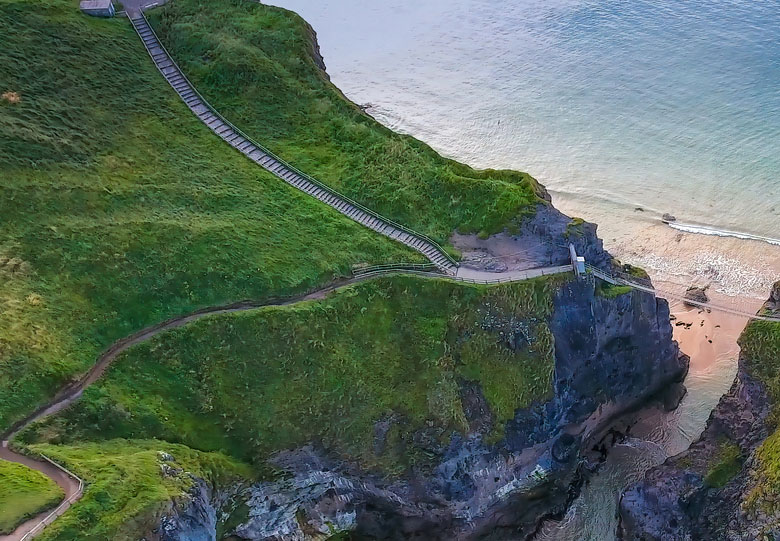Minister for Further and Higher Education, Research, Innovation and Science Patrick O’Donovan TD has today announced €27.5m in funding for 290 projects under the Government of Ireland postgraduate scholarship and postdoctoral fellowship programmes.
The Government of Ireland schemes support exceptional early-career researchers to pursue cutting-edge research with world-class potential in any discipline across the sciences, engineering, arts and humanities.
Minister O’Donovan TD, said:
“Following the establishment of Research Ireland earlier this year, I am delighted to announce this very significant investment in top research talent.
“Ireland has a strong reputation for research and innovation and it is vital that we continue to invest in future research leaders who, together, can play a key role in addressing the many challenges we face and the opportunities open to us.
“The ability to attract and retain excellent researchers within Ireland is key to the success of our knowledge economy for the long-term, and the Government of Ireland programme supports this aim. I wish the many researchers supported under the 2024 programme every success with their projects.”
The highly-competitive programme enables the development of high-level skills and knowledge for current and future challenges across a variety of settings, including industry, the public sector, civil society and academia.
All awardees are based in Ireland’s higher education and research-performing organisations. The scheme is a unique facet of the Research Ireland portfolio, facilitating early-career researchers to lead on the development and implementation of their research idea. The investment this year will fund 210 postgraduate scholars and 80 postdoctoral fellows.
Celine FitzGerald, Interim CEO of Research Ireland, said:
“Research Ireland is delighted to be making this major investment in new research talent.
“A diverse range of early-career researchers working across a spectrum of disciplines will benefit from this funding, including awardees funded by the programme’s valued partners.
“The 290 awardees have demonstrated through rigorous international assessment the quality of their projects and the capacity to contribute new insights and solutions to technological, scientific, environmental, social and cultural challenges.”
Successful Awardees
Some of the Government of Ireland Postgraduate Scholarship Programme awardees include:
- Niamh Clarke, of University College Dublin, whose award will investigate the potential of a specific chemical compound to protect brain cells from damage and reduce seizures in temporal lobe epilepsy, the most common form of the condition.
- Ronan Farrell, of Technological University of the Shannon, whose project will look at novel manufacturing techniques that will aid the fabrication of antimicrobial surfaces on reusable food packaging.
- Stephanie Thompson, of Maynooth University, whose law-based project will conduct a feasibility study on the introduction of a specialised domestic violence court in Ireland.
- Ana Oliveira Buckley from University College Cork, whose project will look at the use of Artificial Intelligence (AI) tools in the development of individualised speech and language therapy for young children with Developmental Language Disorder (DLD).
- Tadgh Farrell of Trinity College Dublin, whose project, ‘Environments of Conflict’ will study warfare and climate change in late medieval Ireland, from 1300 to 1530.
- Dermot Wildes, from RCSI University of Medical and Health Sciences, who will investigate the serious condition of acute kidney injury (AKI) in neonatal intensive care.
Some of the Government of Ireland Postdoctoral Fellowship Programme awardees include:
- Jizhong Meng, of Teagasc, who will investigate innovative bipolar membrane electrodialysis for organic fertiliser production as a means to empower organic farming.
- Tom Spalding, of Dublin City University, who will undertake a study of the social history of street furniture in Munster, its heritage and place-making.
- Hannah Prendeville from University of Galway, whose project will examine the treatment of ovarian cancer through an immunotherapy-based approach to restoring natural killer (NK) cell responses.
- Grace Nolan, of University College Dublin, whose project will assess public perceptions and knowledge of Ireland’s biodiversity.
Ten of the Government of Ireland postgraduate scholarships announced today are made in collaboration with, and funded by, partner agencies. The agencies comprise the Environmental Protection Agency, the Department of Children, Equality, Disability, Integration and Youth (DCEDIY), and the Department of Foreign Affairs.
Some of the successful postgraduate awardees supported by strategic funding partners include:
- Environmental Protection Agency Postgraduate Scholarship awardee Gráinne Gibson from the University of Limerick, whose project will study the complexities of climate action in companies by examining the role of research and development (R&D) and digital skill shortages.
- The Department of Foreign Affairs Andrew Grene Postgraduate Scholarship in Conflict Resolution awardee Evans Amoako Amoah from Mary Immaculate College, Limerick, whose project will examine farmer-herder conflicts in Ghana and investigate linkages between climate change, resource competition and food security in rural communities.
- DCEDIY Postgraduate Scholarship in Childhood Disadvantage in Ireland awardee Borui Zheng from Trinity College Dublin, whose project will employ an ecological systems theory approach to acculturation and inclusive education for migrant and refugee children in Ireland.
Peter Brown, Director, Researcher Development, Research Ireland said, “The Government of Ireland programme is a flagship, highly-competitive scheme, nationally and internationally, that delivers a pipeline of exceptional early-career researchers to Ireland’s research and innovation system.
“The 2024 cohort showcases the impressive range and breadth of projects across the sciences, arts and humanities. The talented early-career researchers have an exceptional opportunity to lead their own research project and develop cutting-edge skills, knowledge and insights.
“In doing so, we boost the foundations for research and innovation in Ireland, for now and the future.
“Whether in industry, the public sector, civil society or our research institutions, our people are our most important resource and the Government of Ireland programme very much aims to develop this resource to its maximum extent.”
